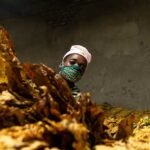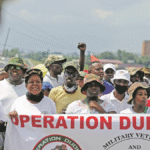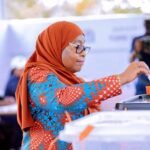Dalitso Kabambe, former central bank governor of Malawi and now a candidate in September’s presidential elections, says the country faces one of the most challenging economic situations in its history.
“Malawi’s situation is precarious. It’s extremely dire,” he told African Business, citing poor agricultural performance, weak growth, and a failure to diversify the economy.
Agriculture remains the backbone of Malawi’s economy, accounting for most exports. But Kabambe says its dependence on maize, tobacco, tea and sugar has left the country exposed to price fluctuations. The sector is largely rain-fed and reliant on basic tools, making it vulnerable to climate shocks.
“These two factors – our inability to improve our farming methods and climate change have grossly affected our production,” he said. “When agriculture sneezes, all other sectors also sneeze.”
The IMF expects the economy to grow by 3.5% this year, up from 1.8% in 2024. But in May, it terminated a US$175m programme after only US$35m was disbursed, citing Malawi’s failure to complete a required review.
The Fund says inflation is rising, foreign exchange reserves are falling, and fiscal imbalances are worsening. Around one-fifth of Malawians are facing high levels of food insecurity.
Kabambe argues that the crisis is compounded by poor governance, an oversized public sector, and unsustainable debt spent on consumption rather than investment. He says this has starved the private sector of funds, while demand for public services grows without matching investment.
If elected, Kabambe says he will lead a full restructuring of the economy, reducing its dependence on a handful of crops. He proposes developing high-value agriculture, such as cotton, moving from production to ginning, spinning, and textile manufacturing alongside soybeans, groundnuts, beans, and pasta production. He also cites fish and cattle farming as growth opportunities.
Mining is central to his plans. Kabambe points to proven reserves of gold, bauxite, rare earths, graphite, and potential oil and gas deposits beneath Lake Malawi. He argues that, unlike other resource-rich countries, Malawi has failed to integrate mining into its economic base.
“South Africa developed out of gold, Botswana from diamonds, and Saudi Arabia from oil and gas. We have all of these available,” he said.
Manufacturing and tourism are also part of his proposed growth strategy. He says broader diversification would create the fiscal space to invest in education, health, and infrastructure, tapping into Malawi’s young population – half of whom are under 20.
Kabambe promises to restore macroeconomic stability within 9 to 18 months through what he calls tough fiscal, monetary, and exchange rate policies. The first three years, he says, would focus on stabilisation, followed by investment in mining, manufacturing, and transformed agriculture.
He also pledges an audit-driven anti-corruption campaign and a shift of resources from central government to local authorities.
Kabambe, who led the Reserve Bank of Malawi from 2017 to 2020, says his record on improving interest rates and boosting private sector lending demonstrates his ability to deliver results.
The race will be competitive, with Kabambe facing incumbent President Lazarus Chakwera, former president Peter Mutharika, and former president Joyce Banda. Despite the crowded field, he insists he is in the contest to win, not to play kingmaker.
“I’m here to fight. We are here to fight as a party. And we can win this election,” he said.










